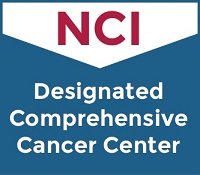Targeted Therapy Offers Hope to Woman Diagnosed with Stage 4 Lung Cancer

Star Dolbier couldn't get a straight answer about what was wrong with her. First, the 49-year-old Ellicott City woman was told the pain in her ribs was probably a pulled muscle. Then, another health care provider suggested it could be a kidney stone. Later when she developed a dry cough, chest pain and felt nauseated, she was told it was probably GERD and given a prescription for acid reflux medication.
Ms. Dolbier found herself growing more and more out of breath. She wondered, "How can I be so out of shape?" She and her husband and their two teenage children took a vacation to Europe in the summer of 2018. She recalled that she coughed so hard as they hiked in the Austrian Alps that she needed to stop "every 10-15 feet." When she got back to the U.S., Ms. Dolbier ended up in the emergency department of a local hospital, where a CT scan revealed that she had a large mass in her left lung and fluid around her lung. She was told it was probably cancer.
Her husband made an appointment for her at the University of Maryland Greenebaum Comprehensive Cancer Center (UMGCCC). Before she came to the cancer center, the thoracic team had already reviewed her case and ordered more tests. The diagnosis: Stage 4 non-small cell lung cancer.
Ms. Dolbier, a former teacher who is now 50, said that people associate lung cancer with smokers, and she, like roughly 15 percent of patients diagnosed with lung cancer, has never smoked. The cancer was not only in her left lung but also in the lining of the lung. She was stunned to learn that she also had a small (less than 1 centimeter) tumor in her brain and cancerous lymph nodes in her abdomen.
But Christian Rolfo, MD, PhD, Ms. Dolbier's medical oncologist and director of thoracic medical oncology at UMGCCC, had some good news.
Tests – including a liquid biopsy to analyze tumor DNA in the patient's blood – showed that she had a mutation in the epidermal growth factor receptor (EGFR) gene – one that responds to a new targeted therapy. Only 15 percent of lung cancer patients in the U.S. have this mutation.
Dr. Rolfo prescribed an oral medication, osimertinib, which has been granted breakthrough status by the U.S. Food and Drug Administration (FDA) as a first-line treatment for patients, like Ms. Dolbier, who have metastatic non-small cell lung cancer that is positive for the EGFR mutation.
Within a day after starting to take the oral medication, she started to feel better, Ms. Dolbier said. "I took the pill on Wednesday and on Thursday morning, I felt good. I hadn't been eating but I asked my husband to go out that morning to get me an Egg McMuffin©,"; Ms. Dolbier recalled. "That afternoon I was able to go to a coffee shop with a friend."
After a month, an MRI revealed the tumor in her brain was gone. After a few months, PET/CT scans showed that the tumor in her lung had shrunk from more than 5 centimeters, or about 2 inches, to about 1.2 centimeters, and the tumors in her abdomen were gone.
"She has had an impressive response to the treatment," Dr. Rolfo said. "The tumor in her brain disappeared after a month, and there is no metabolic evidence of cancer in her abdomen, which is very important. And her quality of life has improved dramatically since we first saw her."
He said the medication could hold Ms. Dolbier's cancer at bay for a couple of years, but like many other cancers, lung cancer can become resistant to treatment. If her cancer progresses, he said he would try other medications or a combination of therapies depending on how the cancer is evading treatment.
"We have so many more treatments for lung cancer, even Stage 4 cancers, than we had only a few years ago," Dr. Rolfo said.
Ms. Dolbier has experienced some side effects, such as a rash and dry skin and hair, but continues to live life to the fullest. She likes to walk on the trails near her home and enjoys spending time with her husband and children. She has started to travel again. "I feel almost 100 percent normal on this drug," she said. "I am so thankful to be able to take it."
#####



